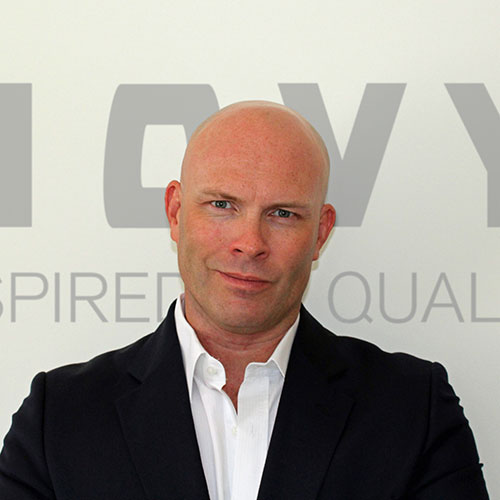Experts from the appliance industry give their predictions on the market for 2021
‘A clear desire for integrated living spaces’
 Howard Bogod, MD of Elica distributor DR Kitchen Appliances, says working and cooking at home will continue to fuel sales
Howard Bogod, MD of Elica distributor DR Kitchen Appliances, says working and cooking at home will continue to fuel sales
We expect to continue seeing steady growth as more importance is placed on remodelling the kitchen as the heart of the home.
We are seeing more home cooking as fewer people are dining out.
In the first half of 2021, Brexit and continued tier restrictions may result in reduced footfall to showrooms. For retailers, we strongly advocate more online promotion through social media and their own websites, together with the use of video meetings with clients to reduce the time taken to reach a decision on the design process and gain a quicker commitment to proceed.
Our confidence in the market going forward is high – 9 out of 10, thanks to consumers looking to invest in their properties.
There is a clear desire for bigger, integrated living spaces combining kitchen, eating and sitting. We will continue to see a strong and growing demand for integrated appliances, with extractor hobs becoming increasingly common, along with ceiling hoods as a lighting feature.
‘My confidence in the KBB sector remains high’
 Max McCormick, category manager at Miele GB, is confident for the next year but warns retailers to plan to cope with more restrictions and possible supply chain issues
Max McCormick, category manager at Miele GB, is confident for the next year but warns retailers to plan to cope with more restrictions and possible supply chain issues
Over the next year or two, the industry will continue to be led by consumer drivers, which are currently going through incredible change. Sales are now recovering thanks to a strong housing market, buoyed by stamp duty relief, and the KBB industry is adapting to the easing restrictions and consumer need for improved living spaces.
Should the housing market soften, opportunity remains in the increasing trends and demands of home renovation. The propensity of consumers to carry out DIY and major projects will be heightened in the event of a slowing housing market and kitchens and bathrooms remain high on their list.
The main challenges going forward are the constant and changing restrictions on retail as a result of Covid-19 and consumer uncertainty caused by Brexit and supply chain issues.
KBB retailers should consider three things, which are all linked to flexibility; the ability to continue trading in enhanced restrictions, stock of key lines without exposure to risk, and options for the consumer that ensure that it is safe and easy to buy. Retailers should ensure that there is technology in place for virtual appointments, a minimum of least three months’ stock of product and consider offering an interest-free credit service.
My confidence in the KBB sector remains high, but there will always be sectors that are impacted more and others less so. For example, the contracts market could slow if the housing market dips.
As more people spend more time at home, quiet and energy-efficient products have surged and will continue to do so. Heightened by this pandemic, consumer’s sentiment towards better health and well-being will continue to drive purchase criteria.
‘Time to reassess your digital marketing’
Commenting on prospects for the KBB industry in 2021 and beyond, Owain Harrison, country manager for Belgian hoods and hobs specialist Novy, advises retailers to invest in digital marketing
There is a lot of conflicting opinion about how the coming year might pan out. Regardless of Brexit dynamics, we see a vulnerability in the UK economy and we are clearly far more dependent on macro-economic output than we would like.
In Q3 of FY2020, the UK was down by nearly 10%, and while the future looks uncertain for the country, our industry has reported an upturn, and at Novy, we are busy.
Looking ahead the main challenges will be consumer confidence, currency deflation, the UK being less attractive as a global player and unemployment in low-skilled areas of our economy
The KBB independent sector needs to continue to demonstrate solidarity in order to compete with the larger independent and multiple chains.
Many retailers have had to time to reassess their marketing during both lockdowns. In order to get more than their fair share, and to market their differences, they need to continually invest in their digital showrooms in order to attract people to their actual showroooms.
The general freestanding white-goods business is very replacement-oriented and this is a deeply mature market, so ±5% amortised is normally way more dependent on inflation and the weather. Meanwhile, the fitted kitchens segment should see growth, effectively because people have been working from home and having spent so much time there, they want better and more flexible kitchens and living spaces to live and work in. Plus not going out, or abroad, has already resulted in the ability to spend saved income on major home improvements.
Rising unemployment risks more wholesale issues, but if inflation can be managed and unemployment slowed, then we still need to build more houses, resulting in further investment in kitchens, bathrooms and gardens.
And when it comes to products, Aldo Gucci once said ‘clients are realising that quality is remembered long after price is forgotten’. Products that are well-made, with low failure rates that deliver a genuine points of difference will always sell.
